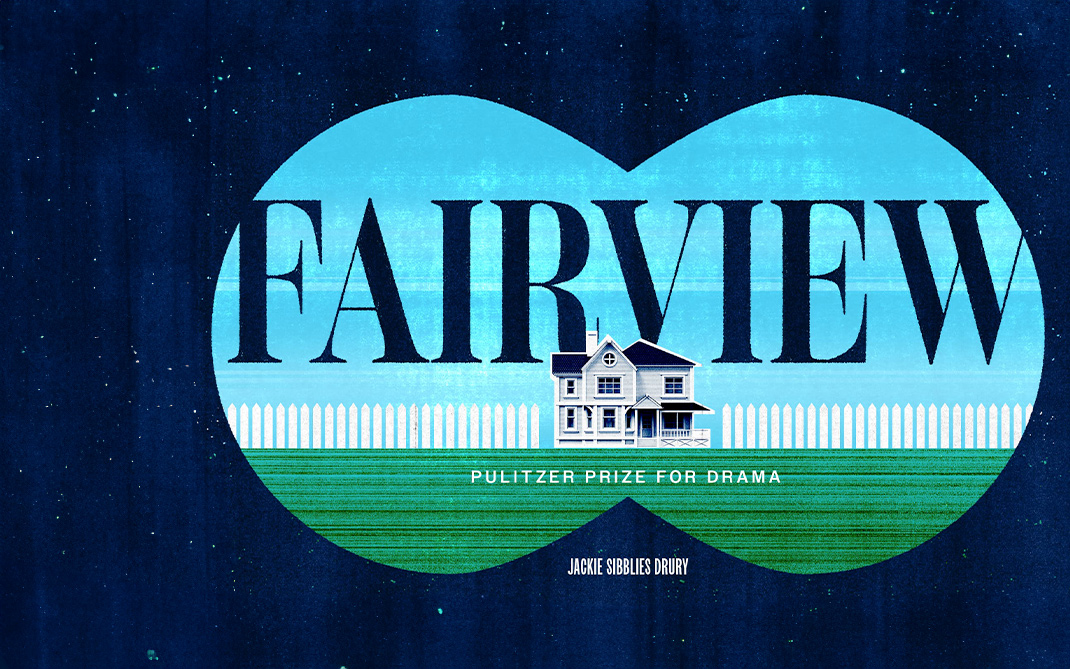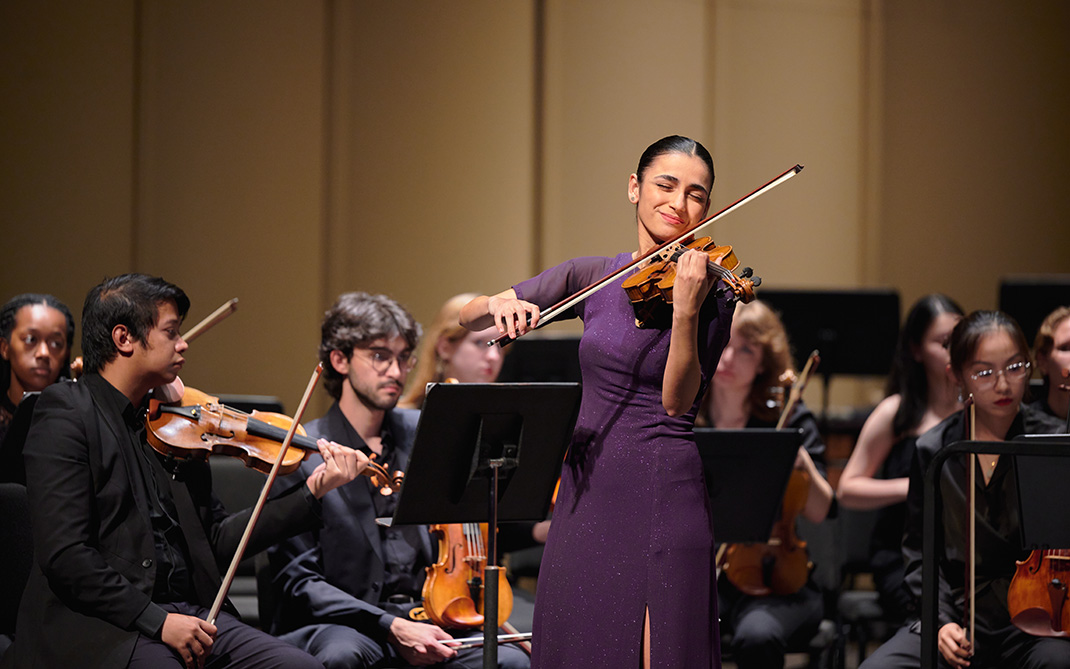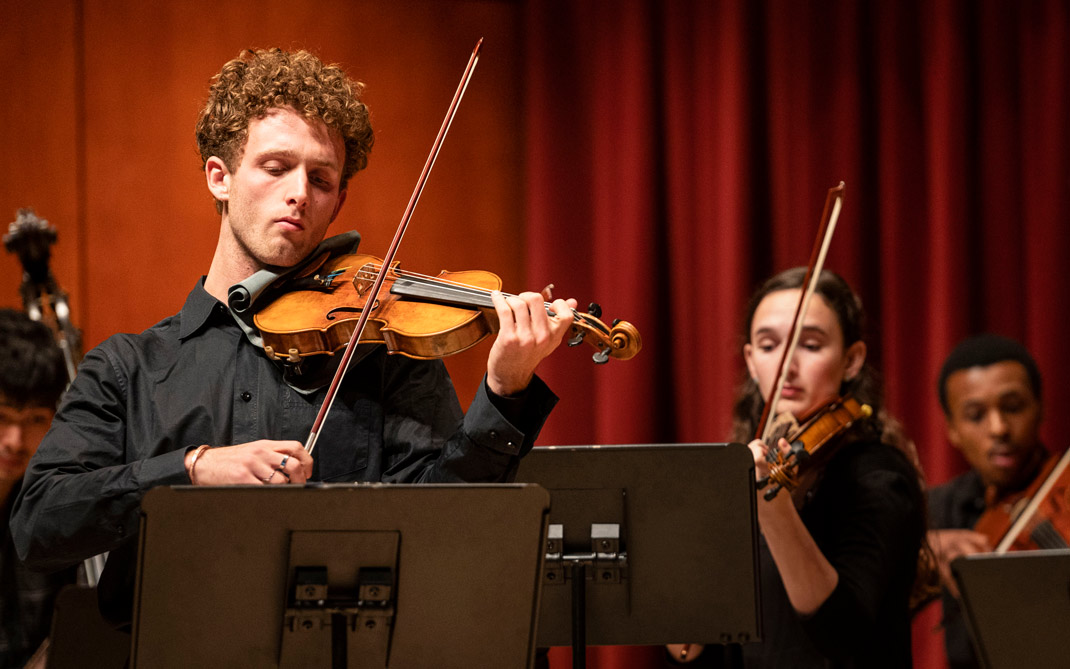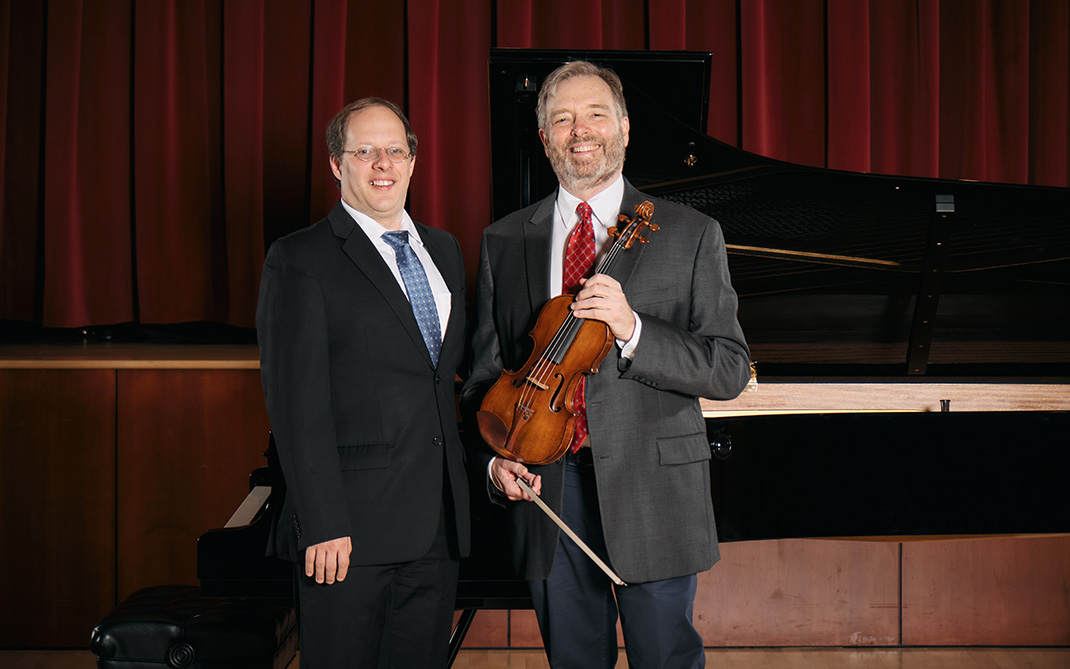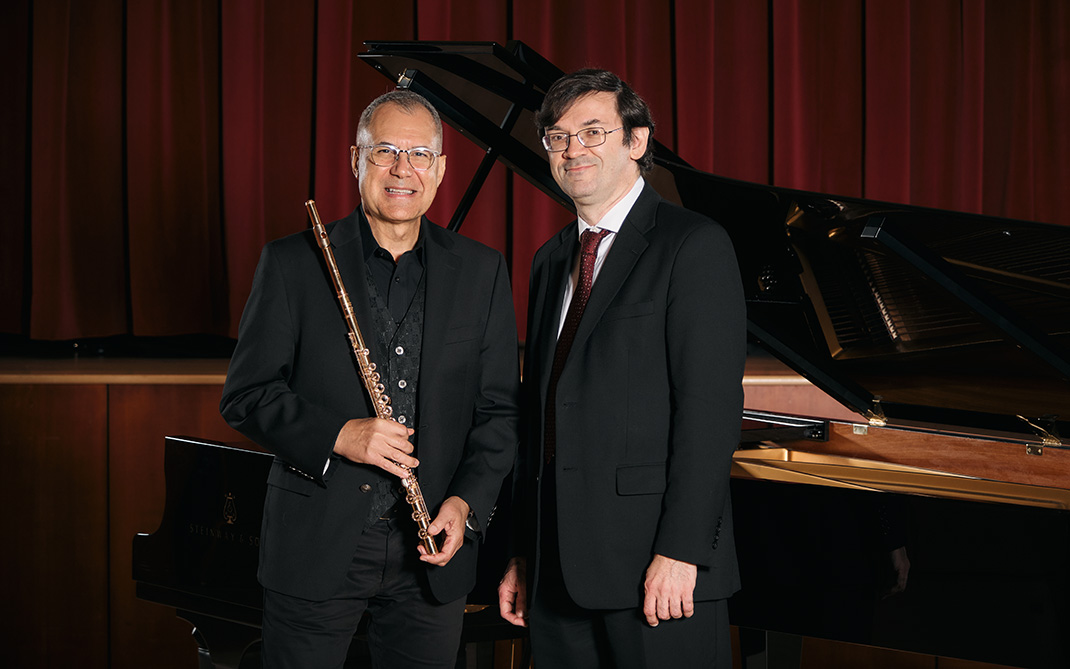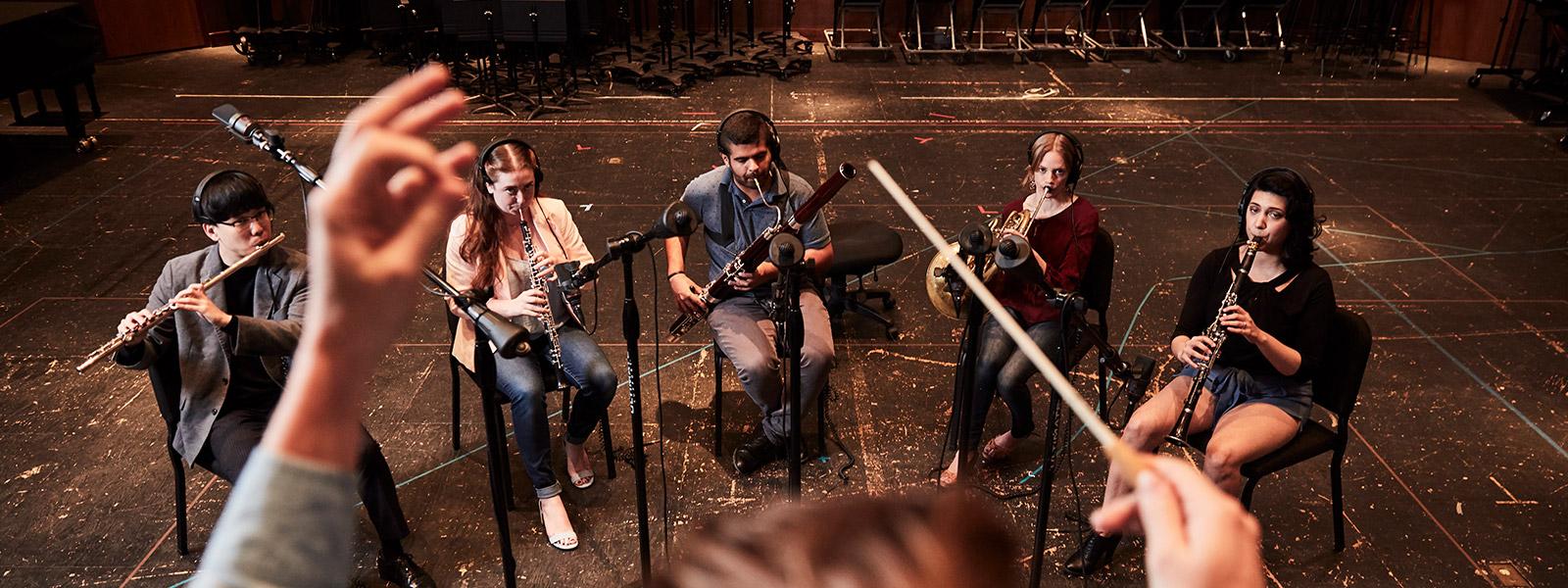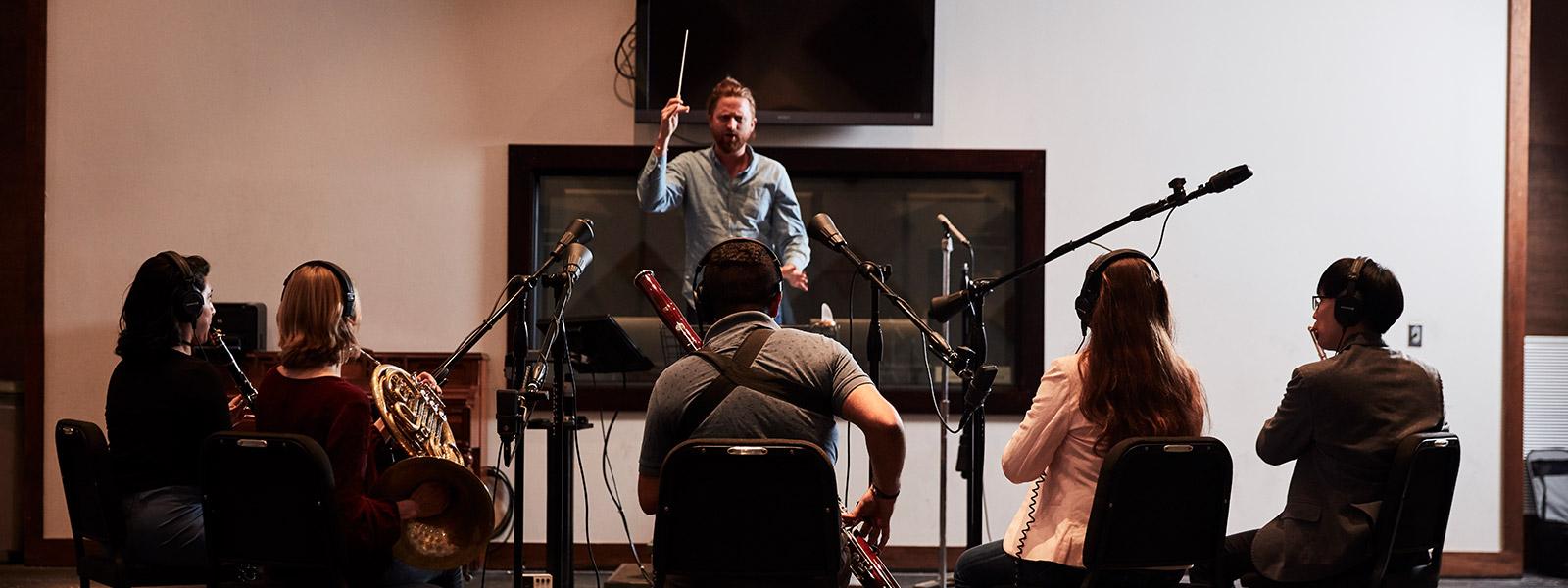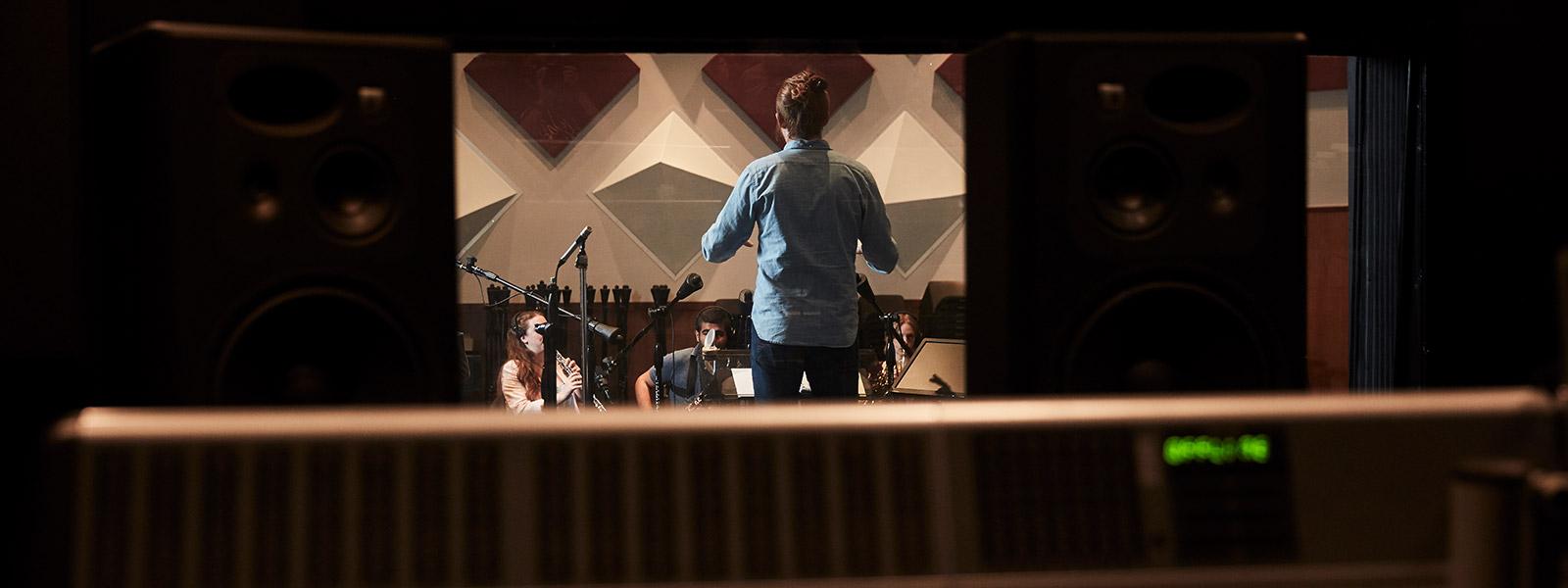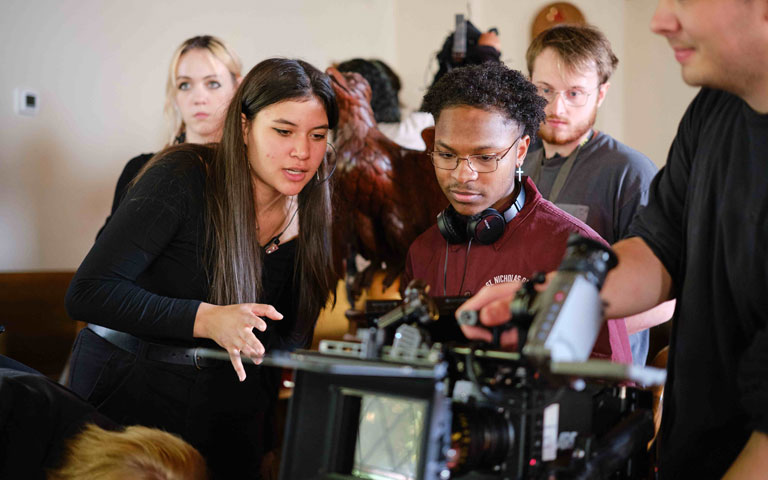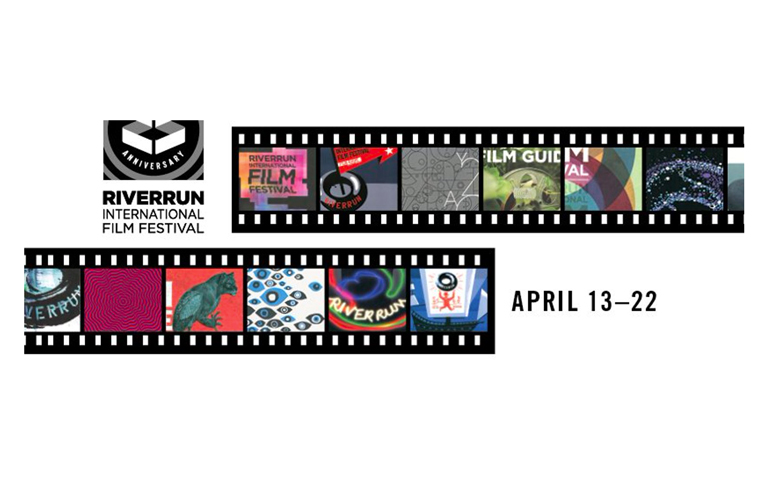Graduate Composition for Film and Visual Media
Music
Graduate Composition for Film and Visual Media
Music tells stories and influences our emotions in ways that other aspects of filmmaking cannot. Students of our graduate program in composition for film & visual media learn about stylistic trends, approaches to film scoring and compositional techniques that evoke a desired emotional reaction.
The Hollywood Reporter has recognized UNCSA as one of the world's top schools training students to compose music for film and television.
UNCSA is unique in that our composition for film & visual media students have the opportunity to score more movies than any comparable program in the world, thanks to the numerous ongoing student film projects produced by the UNCSA School of Filmmaking. The composition for film & visual media program has a unique relationship with student filmmakers that provides opportunities to score short films in collaboration. Student composers collectively score up to twenty short films each year, covering narrative, fiction, animation, and documentaries across many genres, leaving you with an impressive portfolio to launch your career as a composer of music for film, television, web content, and/or video games. Students leave prepared for numerous additional careers as a music editor, music supervisor, orchestrator, recording engineer, or score preparer/copyist.
As part of your curriculum, you meet weekly with your faculty mentor to develop projects and discuss your transition into the industry. Screenings series, workshops, and seminars with prominent guest artists provide invaluable opportunities to discuss the film and television industries and their ever-changing landscape, with ample opportunity to ask questions and share your ideas.
Master of Music
First Year
In your first year of the graduate composition for film & visual media program you have weekly lessons with your faculty mentor, working on technical and compositional skills. In a related seminar course, you'll learn about the post-production process on a film, how to collaborate with a filmmaking crew, how to spot where music should be placed - including how it should function to serve the film’s story - and how to effectively use instrumentation, style, motives, and rhythm to score a film. The seminar format allows you to present your work weekly to your peers, allowing for regular feedback and critique.
You will take a film scoring technology course in which state-of-the-art composition and recording software are introduced to you and explored in-depth, including the most popular digital audio workstations, notation programs, samplers, plug-ins, and synthesizers, as well as orchestral sampling libraries for realistic mock-up creation. This is followed by a course in recording, mixing, and mastering, where you will learn how to manage every aspect of a scoring session using the UNCSA Film Scoring Stage.
In a film music history course, the styles and approaches of influential historical film composers are introduced and explored. An orchestration course familiarizes you with each instrument of the orchestra, allowing you to hear your scores transform from a digital mock-up to a performance by live musicians from the School of Music. Additionally, you will compose original scores for each of the third-year undergraduate film and animation productions, in close collaboration with each film’s director, producer and editor.
Second Year
Concepts and assignments become more advanced in your second year. In the second year of applied lessons and seminar, you will create numerous main title cues for a broad range of genres. A unique film music theory course emphasizes stylistic trends of contemporary film music composers, how sixteenth through twentieth-century music theory concepts can be utilized to drive the narrative in a film. This is followed by an advanced film score analysis course where you will master your ability to perform comprehensive analysis of a film score, enabling you to cultivate a distinctive creative compositional voice using advanced craft and technique.
In your final semester, you'll take a course specifically on scoring for video games, as well as a film music business course, which will introduce you to the practical and business matters related to launching a career in the film industry. You'll compose original scores for fourth-year undergraduate film and animation productions. The program culminates with a thesis project, in which you work closely with a faculty mentor from initial preparation stages to completion.
You cap your education with the opportunity to participate in the UNCSA Los Angeles trip, where faculty take you behind the scenes to meet with alumni and leaders in the industry.
Additionally, numerous courses are available as electives either within the School of Music or the School of Filmmaking either during your first or second year.
Careers
Alumni of our graduate program in Composition for Film and Visual Media (formerly Film Music Composition) have served as composers and assistant composers for television series like “Chicago Fire,” “Castle,” “Law & Order,” “Lie to Me,” “The Unit,” “Survivor,” “Nashville” and “Under the Dome;” video games such as “Red Dead Redemption” and major motion pictures such as “Man of Steel,” “Iron Man,” “Pirates of the Caribbean,” “Vantage Point” and “Hansel & Gretel: Witch Hunters.”
Related Program
The School of Music also offers a graduate degree in Music Composition.
